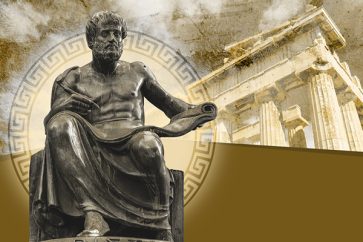What is the world like, and how do we fit into it?
Since the Scientific Revolution, a kind of microphysical atomism has dominated the way philosophers understand nature, inspired by the success of the physical sciences. More recently, a kind of cosmic monism has been gaining in popularity, inspired by the success of quantum physics. However:
- Neither account seems to leave room for genuine human agency.
- Neither account seems to provide a place for genuine human reason.
- Neither account seems to affirm the human aspiration to transcendence.
Would scientific inquiry by human beings be possible in such a world?
This course will introduce and debate three ‘humane approaches’ to the metaphysics of science, which affirm the freedom and agency of human persons, but involve very different conceptions of nature, freedom and the divine. From Monday, May 17th to Tuesday, May 25th we shall be hosting four online sessions given by an array of international speakers highly qualified in their individual fields. There will also be opportunity for online discussion.
Lecture 1: “Souls in Spacetime?”
- Chair: Dr William Simpson
- Speaker: Dr Brian Pitts
- Monday, May 17th, 4:00-5:30pm.
Pitts will consider a sharp division between matter and mind, discussing Leibniz’s mind-body famous interaction problem in the context of Einstein’s General Theory of Relativity, and will suggest that divine causality is analogous to human causality.
Lecture 2: “Human Persons and Quantum Entanglement.”
- Chair: Dr William Simpson
- Speaker: Prof. Michael Esfeld
- Wednesday, May 19th at 4:00-5:30pm.
Esfeld will argue that the physical world is just a network of ‘matter points’ which lack any intrinsic properties, appealing to the phenomenon of quantum entanglement, but that human persons have a transcendental freedom from matter in motion.
Lecture 3: “God, Aristotle and Emergence.”
- Chair: Dr William Simpson
- Speakers: Prof. Robert Koons, Dr William Simpson
- Friday, May 21st at 4:00-5:30pm.
Koons and Simpson will argue that nature consists of inorganic and biological wholes which are irreducible to the sum of their parts, appealing to the phenomenon of emergence in complex systems, and that these entities have intrinsic causal powers.
Debate: “Is Nature God’s icon?”
- Dr Brian Pitts, Prof. Michael Esfeld and Prof. Robert Koons, with Dr William Simpson (moderator)
- Tuesday, 25th May at 4:00-5:30pm.
————–
This course is aimed at science-engaged students (or university graduates) of theology or philosophy. Church leaders with an interest in science-engaged theology may also be interested in attending.
Cost: Regular ticket: £50, Student ticket: £25.
Course Chair: Dr William Simpson, Wolfson College, Cambridge.
Hosted and Organised by: The Faraday Institute for Science and Religion
The organisers gratefully acknowledge the generous funding of The John Templeton Foundation, ‘God and the Book of Nature’, Grant Id: 61507.
Scholarships and Bursaries
For those unable to afford a regular or student ticket, a small number of Scholarships and Bursaries are available. Applicants should register and apply here (DO NOT register on this main registration site if applying for a scholarship or bursary).
Registrations and applications have now closed.





